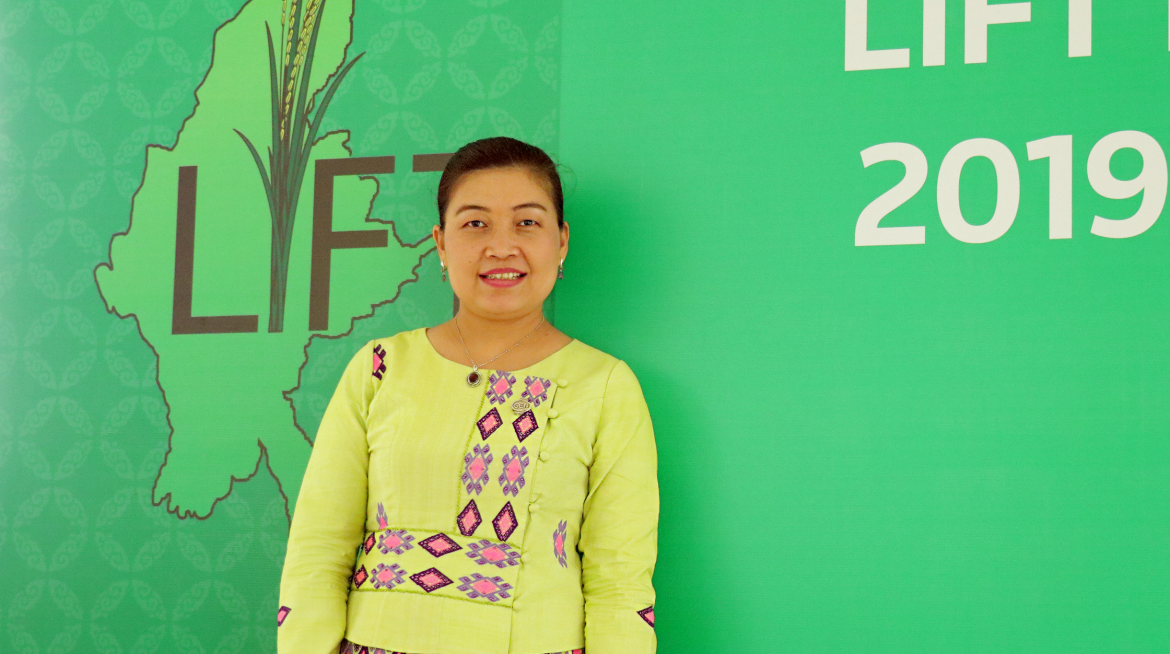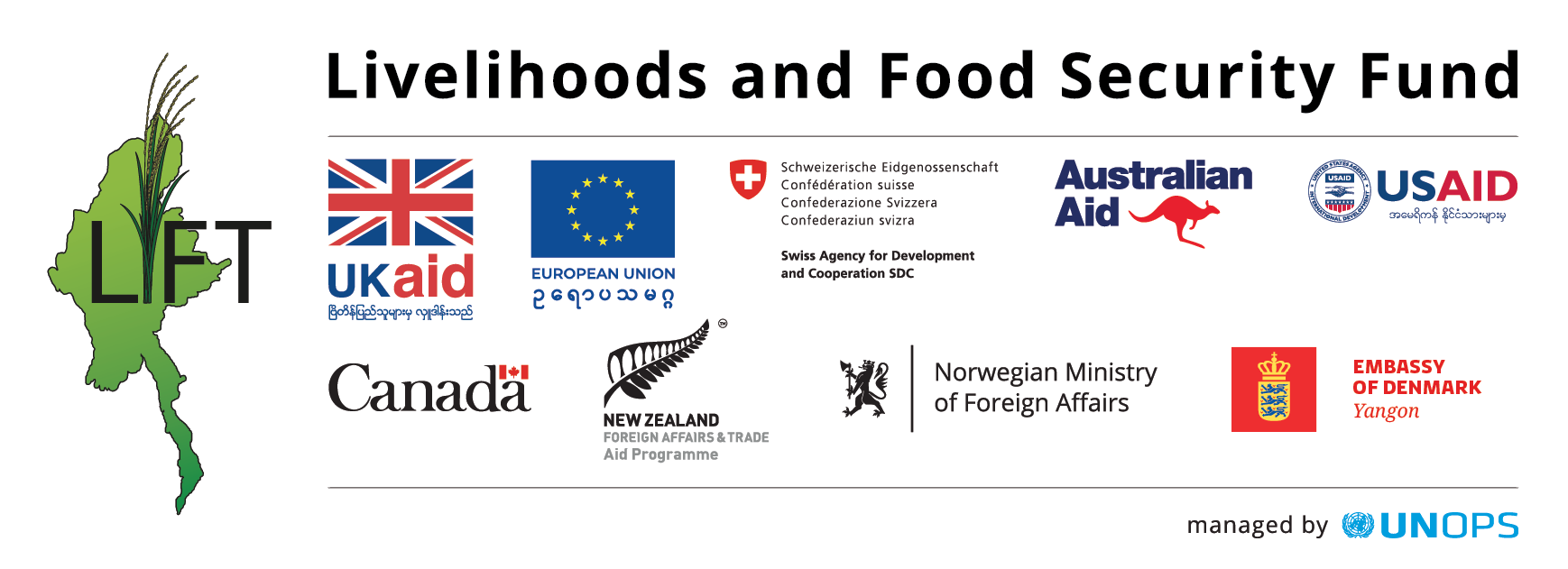
LIFT interviews women’s rights activist Daw May Sabe Phyu
Despite recent initiatives to reduce gender discrimination, bias against women remains widespread as Myanmar still ranks relatively poorly at 148 out of 189 countries in the last Gender Inequality Index (2017). LIFT has therefore spoken with May Sabe Phyu, leading women’s rights activist, winner of the International Women of Courage Award (2015) and Director of the Gender Equality Network (GEN), to discuss and analyse what changes the country needs to embrace so as to better integrate and protect women.
In 1997, Myanmar accepted and ratified the United Nations Convention on the Elimination of All Forms of Discrimination Against Women (CEDAW). The Ministry of Social Welfare, Relief and Resettlement has since adopted the National Strategic Plan for the Advancement of Women 2013-2022 aimed at improving livelihoods, participation in the economy, education, health care, violence, leadership, political participation, and peace processes for women. Despite such improvements however, gender inequality lives on in many aspects of society and as May Sabe advocates, more needs to be done.
 As women struggle to attain leadership positions, “policies and laws in place are not gender-sensitive”
As women struggle to attain leadership positions, “policies and laws in place are not gender-sensitive”
May Sabe told LIFT, “there is still a very low awareness of gender issues”, and many people in Myanmar do not understand the concept of gender nor acknowledge the existence of gender-based inequality. Meanwhile, “the main challenges for women in Myanmar today are discriminatory social norms that limit women’s participation in public life, decision-making and leadership”.
Only 10.6 per cent of parliamentary seats are held by women, and the female participation rate in the labour market is at 51.3 per cent compared to 79.9 per cent for men. Because of such inequalities, May Sabe purports that “policies and laws in place are not gender-sensitive and do not consider the specific needs of women”.
Sexual harassment and domestic violence remain unpenalised
According to May Sabe, “there are very few laws protecting girls and women against all types of violence”. Sexual harassment in the workplace and public spaces is for instance not considered a crime, and “domestic violence is not penalised”, as “there is a widespread belief that women are the properties of the husbands”.
Marital rape is indeed only criminalised if a wife is younger than 14 and victim-blaming is commonplace for women who are considered disobedient. In any case, divorce is taboo and as May Sabe states, “in the case of divorce, the negative repercussions are big, and women have to suffer quietly because they do not dare face society’s criticism of [being] a bad woman”.
Inequality in the workplace and wage gaps persist
Social norms in Myanmar restrict women to being homemakers. Women are generally expected to take on the entirety or a large majority of housework, which often prevents them from gaining influential positions in the workplace.
Additionally, the wage gap between men and women remains consistent in most types of employment in both rural and urban areas. Although women regularly work in low-paying jobs in the agricultural sector, the service sector and industry, men’s work is considered more valuable than women’s regardless of profession.
Lack of protection of women’s inheritance
Although there are no laws prohibiting women from inheriting in Myanmar, there are no laws that actively protect women’s rights to inherit either. In highly unequal societies, this puts women at risk, especially in ethnic groups in the states of Chin, Kachin and Kayah, where it is not customary for daughters to inherit from their parents. May Sabe asserts that the fact that “there is no law against the practice of such discriminatory customary laws […] allows discrimination”. Women in these communities are consequently highly dependent on male family members for their livelihoods.
 Gender-biased portrayal of women in the media and school curriculum
Gender-biased portrayal of women in the media and school curriculum
The media traditionally portrays women in Myanmar as weak and submissive. GEN is therefore working closely with the media to produce gender-sensitive programmes on the radio and television. That includes encouraging the diffusion of stories that depict more complicated leading and strong female characters.
Furthermore, May Sabe explains that the “a lot of content in the current school curriculum is gender-biased, and has discriminatory pictures or poems”, so GEN is working with the Ministry of Education and Ministry of Information to raise awareness about the concept of gender and about the importance of teaching it to school children.
What does the Gender Equality Network do?
GEN is not about implementing projects. As May Sabe says: “We are working for long-term social change. We work on influencing and changing policies to be more gender-sensitive. We also work with the community and key stakeholders like the media and ministries to raise awareness as well as change the mind-set and attitudes of government officials, the public, and both men and women living in community”.
Through a soft-power approach, GEN deals with a wide variety of people and sectors to raise awareness about gender and Myanmar’s perception of women in order to pave the way for policy changes that will durably reduce inequality. In this spirit, May Sabe’s advice to young women who want to transform the status quo is to “just be yourself”, not what you are expected to be.
WRITER: Sandra Vedeld


